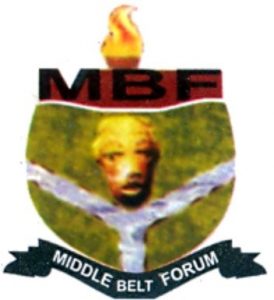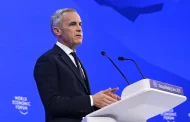The battle of perspectives on violence in Nigeria’s Middle Belt region is far from being over. Perspectives on the current phase of violence in the region has been proliferating, from those who say it is the revenge of unforgiving herders from neighboring countries affected by 2011 electoral violence in the country to those who say it is renegade fighters from North Africa doing their own thing to yet those who say it is criminality and, finally, those who swear it is Islamisation and land occupation. The interpretation of the violence as a jihad has been particularly strong in the region of recent.

Dr Yima Sen, media academic

Comrade Chom Bagu, peace practitioner in the Nasarawa, Plateau and Kaduna legs of the violence in the Middle Belt
Now, radical activists are emerging with their own perspective of the cycle of violence, saying it has nothing to do with a jihadist agenda but everything to do with criminality and incompetence of the governing elite to deal with that variant of criminality. Without denying that killing on both sides have taken place, both speakers at another of Nigeria’s current siege on hateful speeches and violence in Nigeria, particularly the Middle Belt Friday are warning that the social media has taken over and are selling genocidal narratives. “The way people talk and set the tone is genocidal”, said Comrade Chom Bagu, immediate past Country Director of the INGO, Search for Common Ground, and a leading actor in the peace processes on the Plateau. Bagu is saying the social media control of the space of narratives is huge and the power substantial even as he does not think those behind the narratives are that knowledgeable. Although both speakers, Bagu and Dr. Yima Sen, a media expert at Baze University, Abuja asserted that the social order in Nigeria has broken down and is in need of re-invention, they also subscribe to the potential of the social media “to kill a country”, to quote Bagu.
According to Comrade Chom Bagu who is challenging existing narratives of crisis in the Middle Belt, evidence has been emerging of criminal rings seizing the initiative from group narratives of each other in the context of intractable conflict except that everyone has been avoiding that and, instead, opting to interpret the violence as the scheming and plotting of Fulanis pursuing a jihad. This, he said, cannot be correct because most of the Fulanis have lost their cattle and are simply in no position to complete what Usman Dan Fodio started in the form of a Jihad. Fulanis would be stupid to start a fight, not after the loss of their cattles on that scale but also of their children who are now reduced to herding cattles for others for a pay. “Most of the herders carrying cattles are carrying not their father’s cattles but for pay”, said Bagu who added how Fulanis are now complaining that their children no longer respect them because they are dancing to different pipers – rich owners of cattles hiring them rather than cattles transferred from the parents.
The problem persists because the security agencies have not been able to get at criminality as to get both sides to see the cycle of violence as such. That is the challenge, said Bagu who argued that this challenge has been compounded by group representation of the criminality as their own ‘armies’ fighting for their religion or ethnic groups. Contending that the cycle of violence has been tempting for criminal groups, Comrade Bagu pointed at how those of them who have worked on the crises in Plateau, Nasarawa and Kaduna states were never able to put their finger at any clear explanation and hence the conclusion that what was at issue was an intractable conflict.
Locating the intractability and the associated hateful practices driving it in a larger context, the presenter argued this in terms of the complexity of diversity in the Middle Belt region as well as the particular dimension of colonialism in the region. He was referring to the situation whereby the adoption of Indirect Rule and the British’s choice of Fulani elite to operationalise it meant the Fulani face of colonialism in the region and the politics of historical memories associated with that. “It is at the foundation of their grievances about Nigeria”, contended Bagu in reference to the Middle Belt, pointing out how that experience has made the Middle Belt to go to wherever they see others agitating, thereby ending up fighting other people’s wars.

A major discussant of the violence in the Middle Belt in terms of its interpretation of it as genocide
Understanding hate speeches and violence in the region largely in this context, he pointed at how this has shifted from Kaduna Mafia narrative to Islamisation today as the conflict exacerbated between 2001 and now, especially in the aftermath of the declaration of Sharia in some predominantly Muslim states in the North. He spoke of the subsequent migration into and the choking up of Jos as to provoke emotional reactions such as ‘if they chased us from their areas, what are they doing here’. In that charged situation, any little spark such a young Christian girl passing through a Muslim prayer session led to a bloody violence in which over 1000 persons were killed as in the September 2001 violence in Jos. Then the 2002 and 2004 cycle of violence. In Bagu’s analysis, the 2004 violence was such that forced Fulanis to relocate to Bauchi, after losing so much. This cycle climaxed in the Fulani attack on Dogo Nahawa in 2010 from which point the narrative of Jihad concretised against the Fulanis. Today, the enemy image is that of the killer herdsmen, said Bagu who maintained that hate speeches are traceable to relationships that have gone through stages but gone sour.
For Bagu, hateful speeches have kept on deepening, with people finding more hurtful ways of representing Otherness, with people moving from religion to ethnicity to indigene-settler dichotomy and now, killer herdsmen. “Even the government” is confused”, said Bagu who cites its acceptance of the herder-farmer representation of the violence as evidence of that claim.
Dr Yima Sen who spoke along with Bagu at the session on the Middle Belt during the workshop on Fake News and Insecurity in the Country agreed no less but put the blame on the quality of class leadership of the power elite in Nigeria and its mediocrity in terms of understanding the responsibility devolved on it in running a country such as Nigeria. Contrasting the Nigerian ruling class to its Ghanaian counterpart, Dr Sen points at the political engineering that a Kwame Nkrumah engineered in Ghana whereby Ghanaians in London or New York would introduce themselves in terms of Ghana or Africa unlike their Nigerian counterpart who would introduce him or herself first as Ishekiri, Hausa, Yoruba or whatever before talking of Nigeria or Africa if at all.
Dr Yima puts the Middle Belt at the centre of identity politics in Nigeria because of its identity complexity but also a powerful stabilising factor of the Nigerian polity though disagreeing that what is happening now is a herder-farmer conflict. It is bad political engineering, he says, defining that as the inability of political leaders to frame a grand direction to which the country should be headed.
Difference alone is not enough for us to be fighting because “diversity itself is one of the spices of life”, argues Dr. Sen who gave a progressive character to Middle Belt resistance in Nigerian politics, historically, citing the Northern Progressive Front of 1964 as the epitome of that claim. In his narrative, the front was the culmination of a progression from the Northern Non-Muslim League in which the opposition to the status quo in the North expressed itself initially to the Middle Zone League; the Middle Belt Party and the United Middle Belt Congress, (UMBC). The progression, said Dr Sen, was always about cutting off the resistance from a religious or ethnic anchorage to a rather geopolitical view of it, leading to the front that was a fusion of NEPU and Borno Youth Movement by the Middle Belt fraction of the resistance elements in Northern Nigerian politics.
What the social media is getting wrong, in his own analysis, is compounding the problem by not taking this trajectory into account, leaving citizens with power in their hands to be narrating the world from a divisive rather than unifying frames. For Dr Sen, only the civil society can move on this challenge, not the present political leadership nor the Nigerian State, existing political parties or individuals. Sparing neither the incumbent president nor National Chairperson of the All Progressives Congress, (APC), Dr Sen said the political class in Nigeria is digging its own grave because they think the issue is just to accumulate money and get power but careless about a holistic analysis of the crisis.
Certain not to be the last on this all-consuming issue, Comrade Chom Bagu and Dr Yima Sen are, however, the first set of Middle Belters to speak to the perspective of criminality in the violence in the region. This will have a meaning making significance even as others such as the Sultan of Sokoto, for instance, and the scholars at Pastoralist Resolve have been harping on in terms of the criminality paradigm. The debate is bound to heighten, moving to questions of who provides the arms with which criminality is possible and in which context. That debate is already on, with the government of the day saying it is corrupt politicians fearful of prosecution. Opposition, on the other hand, says it is the government itself by its exclusionary practices and selectivity. Posing the contextually constitutive force of narratives as the two Marxists in Bagu and Dr Sen’s attention to the ‘we/they’ binary and the Middle Belt violence shows, they are likely to be asked to ‘read’ that conversation between the government and opposition in relation to access to truth on the cycle of violence.





























1 Comments
Lanre Obafemi
This “criminality” Perspective is suspect. What we have seen in Southern Kaduna, Benue, Taraba, Adamawa, Nassarawa and Plateau are not herdsmen versus cultivators clashes but armed invasions by Fulani Militias of MiddleBelt communities that were not at war with them. These invasions are facilitated by the Nigerian Armed Forces. The Airforce facilitated the attacks on Adamawa Middlebelt communities and the Army and police facilitated attacks on Benue, Taraba and Southern Kaduna communities. Representatives of the militias own up to the attacks , leaving representatives of the Nigerian state to look for other excuses. Not only does the state not inhibit , curb or fight the attacks , forces of the state facilitate them. Espousing some “criminality “perspective is merely throwing up another herring to obfuscate issues. It is not helpful towards understanding what is going on, but certainly helps the Fulani belliingerents